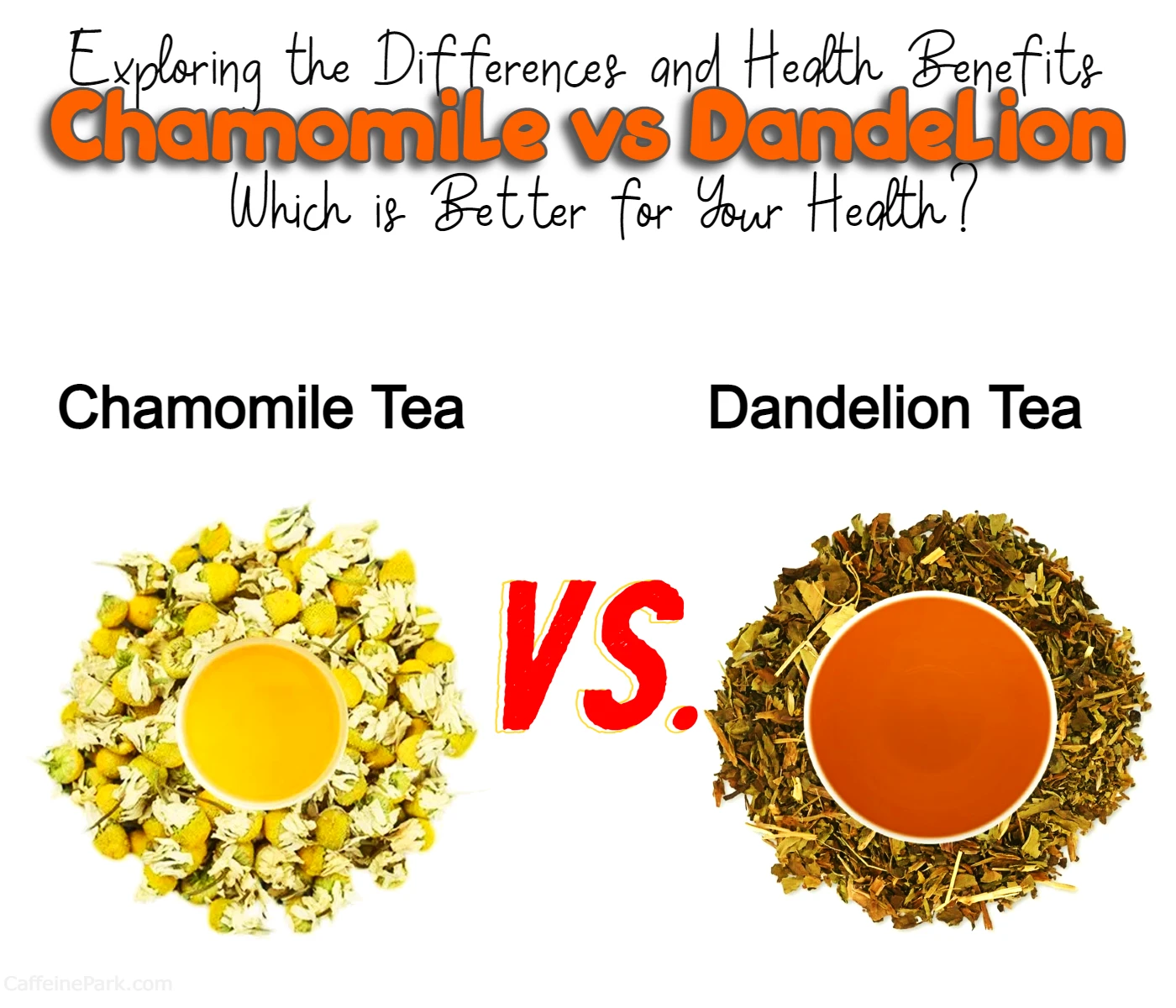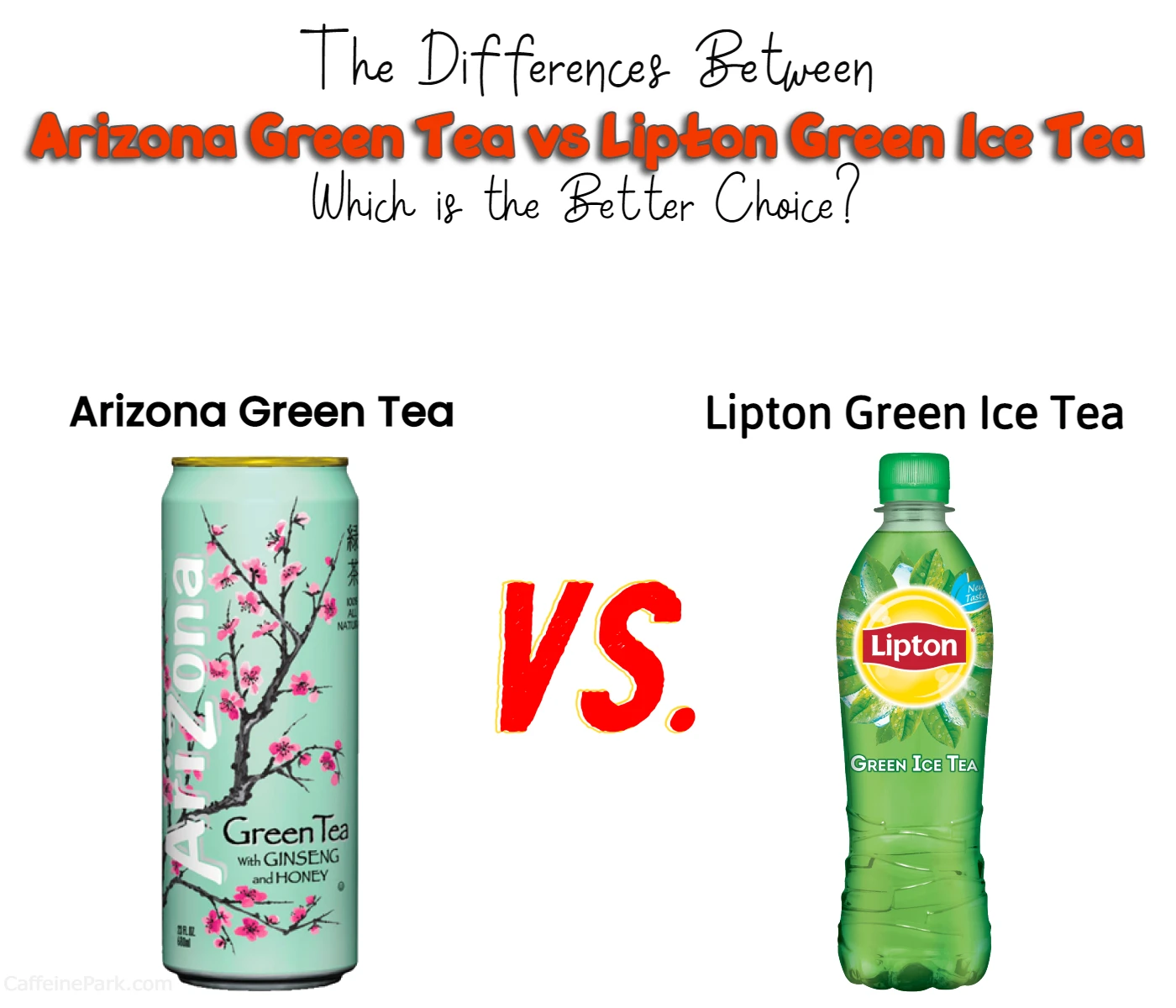
Welcome to my blog on the differences between chamomile tea and dandelion tea. If you’re a tea lover looking for new and healthy beverage options, you’ve come to the right place! In this article, we’ll explore the unique properties of chamomile tea and dandelion tea, as well as their potential health benefits.
But why should you care about the difference between these two teas? Well, not only are they both delicious and soothing, but they also offer distinct health benefits that could improve your overall well-being. Whether you’re struggling with inflammation, or digestive issues, or just looking for a calming bedtime ritual, there’s a tea out there for you.
So, grab your favorite mug and settle in for a cozy read. By the end of this article, you’ll have a better understanding of which tea is right for you and how to prepare it. Don’t forget to read until the end for my final thoughts and a call to action to help you continue your tea education journey. Let’s get started!
Here’s a quick comparison chart of chamomile tea vs dandelion tea:
| Chamomile Tea | Dandelion Tea | |
|---|---|---|
| Flavor | Mild, floral | Slightly bitter, earthy |
| Health Benefits | Calming, anti-inflammatory | Liver support, blood pressure, digestion |
| Caffeine Content | Caffeine-free | Caffeine-free |
| Preparation | Steep dried chamomile flowers or tea bag in boiling water for 5-10 minutes | Steep dried dandelion leaves or roots in boiling water for 5-10 minutes |
| Best for | Sleeplessness, anxiety, digestive issues, skin irritation | Liver function, blood pressure, digestion, detoxification |
It’s important to note that while chamomile tea and dandelion tea have unique properties and potential health benefits, they both offer a delicious and healthy alternative to traditional caffeinated teas. Ultimately, the choice between the two teas comes down to personal preference and health goals.
Differences between Dandelion and Chamomile Teas
Chamomile tea is an herbal tea made from the flowers of the chamomile plant. There are two main types of chamomile used for tea: German chamomile and Roman chamomile. Chamomile tea has been used for centuries as a natural remedy for a variety of ailments, including insomnia, anxiety, and digestive issues.
Dandelion tea is also an herbal tea made from the roots and leaves of the dandelion plant. The dandelion plant is a common weed that can be found in many parts of the world. Dandelion tea is known for its potential health benefits, including improving digestion, reducing inflammation, and supporting liver health.
Appearance and Flavor
Chamomile tea has a yellowish color and a sweet, floral aroma. The taste of chamomile tea is also sweet and slightly bitter. Dandelion tea, on the other hand, has a dark brown color and a slightly bitter taste. Some people describe the taste of dandelion tea as similar to coffee or black tea.
Chamomile vs. Dandelion: Health Benefits
Both chamomile tea and dandelion tea are known for their potential health benefits. Here are some of the benefits associated with each tea:
Health Benefits of Chamomile Tea
- Promotes better sleep: Chamomile tea contains compounds that can help promote relaxation and improve sleep quality.
- Reduces inflammation: Chamomile tea contains anti-inflammatory compounds that may help reduce inflammation in the body.
- Supports digestion: Chamomile tea has been traditionally used as a natural remedy for digestive issues, including bloating and gas.
- May lower blood sugar: Some studies have suggested that chamomile tea may help lower blood sugar levels, making it a potential natural remedy for diabetes.
Health Benefits of Dandelion Tea
- Supports liver health: Dandelion tea is believed to support liver health by helping to detoxify the liver and improve liver function.
- Promotes digestion: Dandelion tea has been traditionally used as a natural remedy for digestive issues, including constipation and bloating.
- Reduces inflammation: Dandelion tea contains anti-inflammatory compounds that may help reduce inflammation in the body.
- May lower blood pressure: Some studies have suggested that dandelion tea may help lower blood pressure levels, making it a potential natural remedy for hypertension.
Chamomile vs. Dandelion: Side Effects
Both chamomile tea and dandelion tea are generally considered safe for most people when consumed in moderation. However, there are some potential side effects to be aware of:
Side Effects of Chamomile Tea
- Allergic reactions: Some people may be allergic to chamomile and may experience allergic reactions, including skin rashes, hives, and difficulty breathing.
- Drowsiness: Chamomile tea can cause drowsiness in some people, so it’s important to avoid driving or operating heavy machinery after consuming chamomile tea.
Side Effects of Dandelion Tea
- Allergic reactions: Some people may be allergic to dandelion and may experience allergic reactions, including skin rashes, hives, and difficulty breathing.
- Diuretic effect: Dandelion tea is a natural diuretic, which means it can increase urine output. This can be beneficial for some people, but it can also cause
dehydration if you don’t drink enough water to compensate.
Chamomile vs. Dandelion: How to Prepare
Both chamomile tea and dandelion tea are easy to prepare and can be enjoyed hot or cold. Here’s how to prepare each tea:
How to Prepare Chamomile Tea
- Boil water in a tea kettle or on the stove.
- Place 1-2 teaspoons of dried chamomile flowers or a chamomile tea bag in a mug.
- Pour the hot water over the chamomile and let it steep for 5-10 minutes.
- Remove the chamomile flowers or tea bag from the mug and enjoy.
How to Prepare Dandelion Tea
- Boil water in a tea kettle or on the stove.
- Place 1-2 teaspoons of dried dandelion leaves or roots in a tea infuser or tea bag.
- Pour the hot water over the dandelion and let it steep for 5-10 minutes.
- Remove the dandelion leaves or roots from the infuser or tea bag and enjoy.
Chamomile Tea vs. Dandelion Tea: Which is Better?
Both chamomile tea and dandelion tea have potential health benefits, and the choice between the two will depend on your personal preferences and health needs.
If you’re looking for a natural remedy to help you sleep better or reduce inflammation, chamomile tea may be a good choice for you. On the other hand, if you’re looking to support liver health or lower blood pressure, dandelion tea may be a better option.
Ultimately, both chamomile tea and dandelion tea are healthy beverages that can be enjoyed as part of a balanced diet. It’s important to remember that while they may have potential health benefits, they should not be used as a substitute for medical treatment. If you have any questions or concerns about incorporating herbal teas into your diet, it’s always a good idea to talk to your doctor or a qualified healthcare professional.
Alternative to chamomile tea and dandelion tea
If you’re looking for an alternative to chamomile tea or dandelion tea, there are plenty of other herbal teas to try. Here are a few options:
- Peppermint tea: This refreshing tea is great for digestion and may help alleviate headaches and nausea.
- Ginger tea: Ginger tea is a popular remedy for nausea and inflammation. It’s also a warming tea that can help soothe a sore throat.
- Rooibos tea: Rooibos tea is caffeine-free and contains antioxidants that may help protect against chronic diseases.
- Lemon balm tea: This lemon-scented herb has calming effects and may help reduce anxiety and improve sleep quality.
- Hibiscus tea: Hibiscus tea is known for its tart flavor and high levels of vitamin C. It may also help lower blood pressure and reduce inflammation.
No matter which tea you choose, herbal teas can offer a variety of health benefits and make a delicious addition to your daily routine. Be sure to choose organic teas and always consult with your doctor before incorporating new herbs into your diet.
FAQs
Chamomile tea is often recommended for its calming effects and ability to promote relaxation and better sleep. Dandelion tea may not have the same sleep-promoting properties as chamomile.
Both teas are generally safe to consume in moderate amounts. However, some people may experience allergic reactions or interact with medications. It’s best to talk to your doctor before incorporating herbal teas into your diet.
To prepare chamomile tea, boil water and steep 1-2 teaspoons of dried chamomile flowers or a chamomile tea bag in a mug for 5-10 minutes. To prepare dandelion tea, boil water and steep 1-2 teaspoons of dried dandelion leaves or roots in a tea infuser or tea bag for 5-10 minutes.
Read More:





